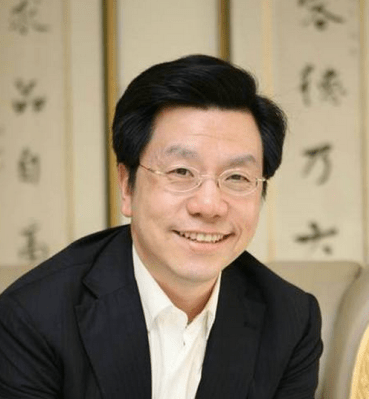Despite being booted off his Sina and Tencent Weibo accounts for three days after criticizing state-run search engine Jike, former Google China head Kaifu Lee remains optimistic about social media in China. Lee posted an entry on his LinkedIn blog today on how he believes social media can help ordinary citizens in that country:
Many people followed the news, and sent me their condolences about my recent predicament. With news like this, most of my American friends assumed that social media in China cannot thrive, due to tighter controls. While the controls are tighter, one must realize that social media is infinitely more open than other media in China, and Sina has built a solid product integrating images, video, structured dialog, and longer tweets. As a result, Sina Weibo has become the media of choice that people flock to find or share information, and to voice or hear opinion.
Since announcing his Weibo suspension, Lee has collected a few more followers on Twitter and now has about one million on the U.S.-based site. Still, it’s a tiny fraction compared to Lee’s audience on his Chinese microblogging accounts. Lee has 30 million “fans” on Sina Weibo and 24 million “listeners” on Tencent Weibo. As he noted in his LinkedIn blog post, Lee has been outspoken on his Weibo accounts about a variety of contentious topics, including the recent blockage of GitHub.com by the Chinese government, the Taiwanese presidential election, and newspaper Southern Weekend’s run-in with government censors.
Lee made his comments about Jike followed a report on tech blog Huxiu.com that the search engine had sent an internal announcement before last week’s Chinese New Year holiday that about five to 10 percent of its approximately 500 employees would be laid off following a performance-based evaluation. The report attributed Jike’s failure to thrive to several factors, including former table tennis star president Deng Yaping’s lack of search engine experience and the fact that 80 percent of its work force is made up of engineers, meaning that the company does not have enough marketing, product development or client services staff.
Huxiu was forced to take down the report, but blog Feichangdao, which covers freedom of speech in China, has screenshots and a cached version is still available here. The Web site has also gotten around Chinese censors by outlining the timeline that led to the deletion of its Jike report on Tumblr.
Jointly funded by the state-run People’s Daily and People’s Daily Online, Jike was launched in June 2010 by the Chinese government as part of its bid to move into the commercial Internet space. (Its name is supposed to be a homophone for “geek” in Chinese, not rhyme with “like.”)
Deng was chosen because of her strong name recognition in China, but after the layoff rumors began, Lee questioned her ability to lead Jike in an article posted on China Newsweek on February 17 that has also since been deleted, comparing the decision to the Democratic Party in the U.S. appointing Michael Phelps to be CEO of Google. Soon after those comments were published, Lee made his Twitter posting announcing that he’d been booted of Sina and Tencent Weibo for three days.
Both Sina Weibo and Tencent Weibo also began censoring searches for “Deng Yaping Doesn’t Get Search” on the same day, around the same time the Global Times, another state-sponsored publication, published an article with quotes from a Jike spokesperson refuting the layoff reports.
Jike has also said that not only is it not planning to fire employees, but it in fact has plans to recruit another 40 college graduates in March. But it will be difficult for Jike to make an appreciable dent in a marketplace that is dominated by Baidu. According to CNZZ, Jike doesn’t even make the list of top 10 search engines in China: Baidu currently holds about 71.2% of the market in China, followed by Qihoo So.com with 10.4% and Sogou.com with 7.9%. Google and Tencent Soso.com making up the rest of the top 5. Furthermore, Jike’s skewing of search results is obvious to even the most casual user, as outlined by China Media Project, making it an even less attractive alternative to its competitors.
